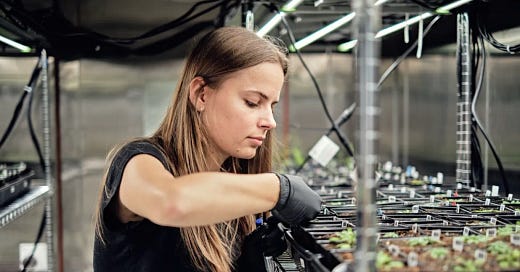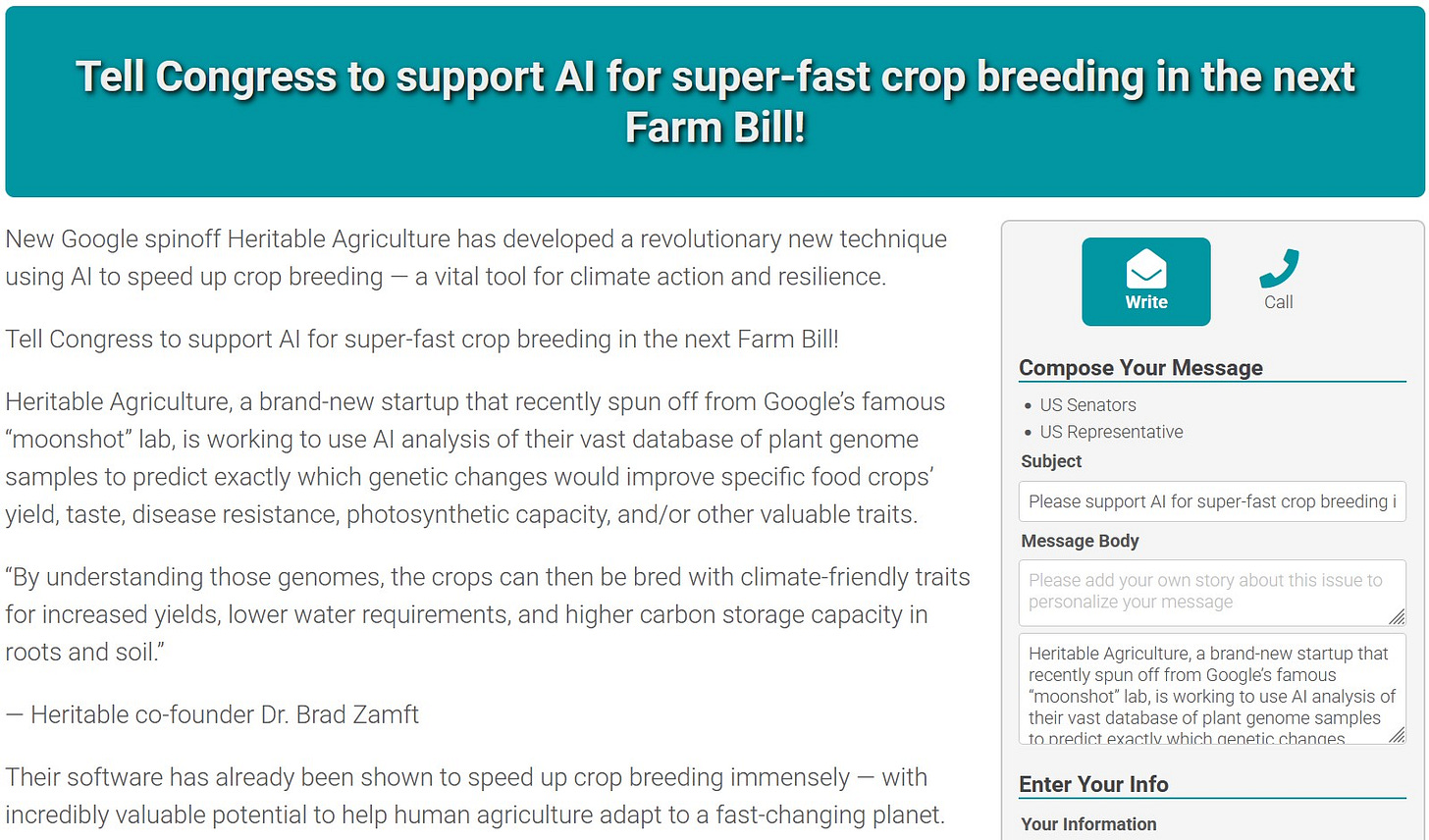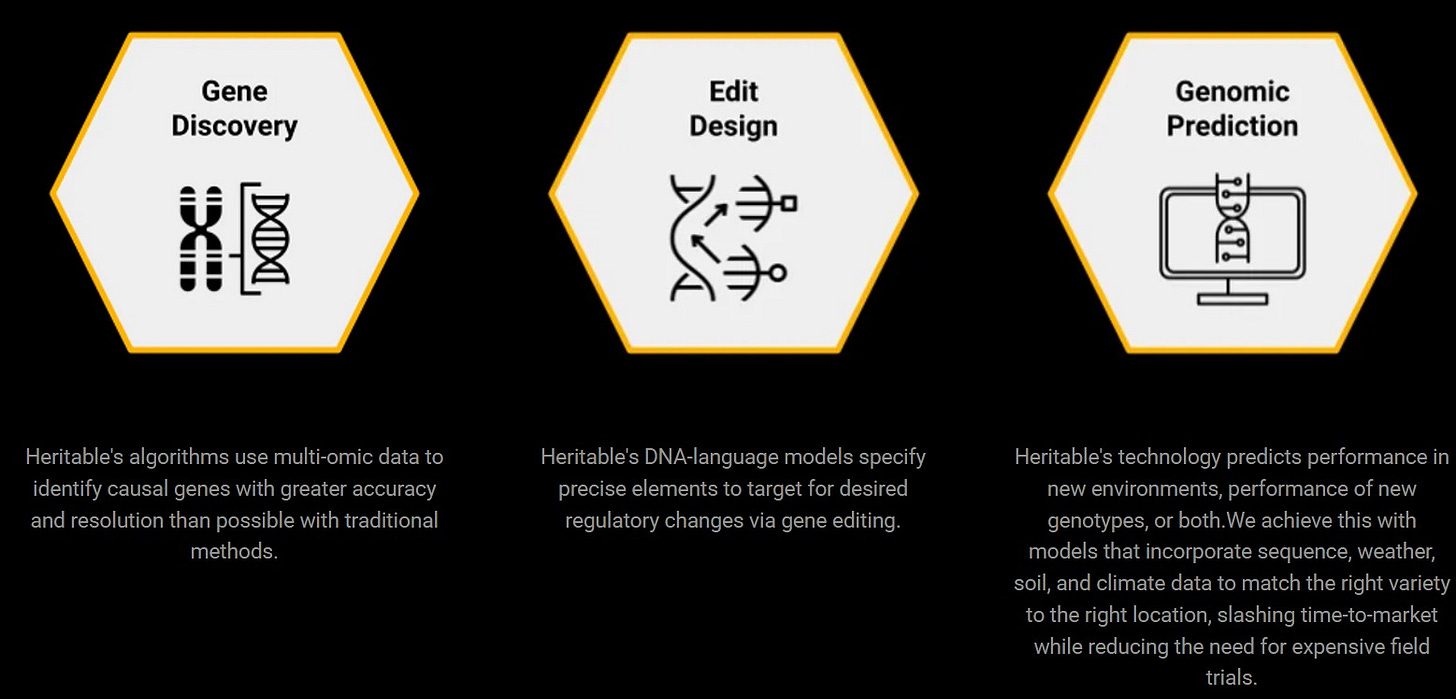Your Daily Dose of Climate Hope: February 21, 2025
AI for super-fast climate-resilient crop breeding!
New Google spinoff Heritable Agriculture has developed a revolutionary new technique using AI to speed up crop breeding — a vital tool for climate action and resilience.
Tell Congress to support AI for super-fast crop breeding in the next Farm Bill!
Touch or scan the QR code below to take today’s action in the app and earn trees!
Or take action on the Internet – no app required!
Reasons For Hope
Heritable Agriculture, a brand-new startup that recently spun off from Google’s famous “moonshot” lab, is working to use AI analysis of their vast database of plant genome samples to predict exactly which genetic changes would improve specific food crops’ yield, taste, disease resistance, photosynthetic capacity, and/or other valuable traits.
“By understanding those genomes, the crops can then be bred with climate-friendly traits for increased yields, lower water requirements, and higher carbon storage capacity in roots and soil.”
— Heritable co-founder Dr. Brad Zamft
Their software has already been shown to speed up crop breeding immensely — with incredibly valuable potential to help human agriculture adapt to a fast-changing planet.
“Traditional crop breeding is much too slow and expensive to enable all the beautiful things that synthetic biologists have said we’ll do: nitrogen fixation, sustainable forestry, food-as-medicine, carbon capture.”
— Heritable co-founder Dr. Brad Zamft
This is an innovation with the potential to truly transform the world for the better, optimizing every single crop grown by humans to produce more food for less input while treating the land better at the same time. It could supercharge a second, sped-up version of the “Green Revolution” of the 20th century, providing improved crop varieties to farmers in need around the world.
“If technology can drive down the cost of breeding, then a larger number of plants could be adapted to a larger number of environments.
Relatively poor farmers in developing countries, for example, could then breed and use plants which are designed for their needs.
This will be particularly useful as staple crops face the pressures of climate change, which is happening too fast for traditional breeding to adapt.
Heritable also hopes to apply its computational powers to the breeding of trees, and thereby the management of forests. Native trees might be bred so that their yield of timber became competitive with industrial pine, thereby increasing biodiversity. The firm is already working with ArborGen, a seedling provider, to improve its loblolly pines.
— The Economist
This is vitally important work! As this is a brand-new technology, now is the ideal moment for proactive citizens to get a “foot in the door” and help ensure future support from the U.S. government.
You’ve probably heard already that Congress is still discussing1 the upcoming Farm Bill, a huge investment in American agriculture (the U.S. spends an average of $648 billion per year on Farm Bill programs) that’s up for renewal for the first time since 2018. As with our previous Farm Bill-related policy actions on climate-resilient crops, methane-reducing vaccines for cattle, methane-eating microbes, phytomining, electro-agriculture, decentralized clean ammonia production, and steam seed treatment the just-getting-started field of AI-accelerated crop breeding is a brand-new invention and not really on the political radar screen yet. That means there’s a really great opportunity here to tell Congress to use the Farm Bill to help promote its deployment!







